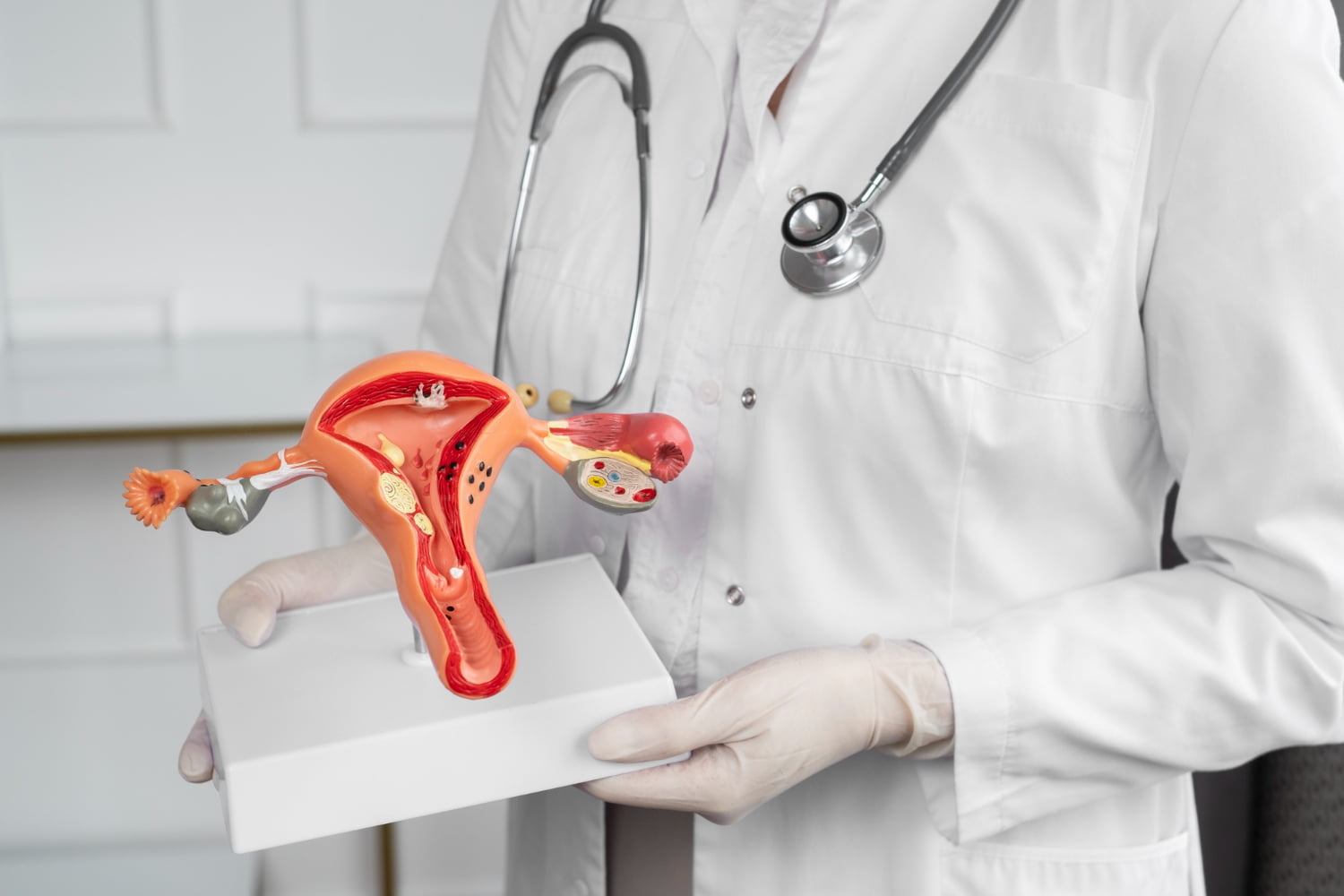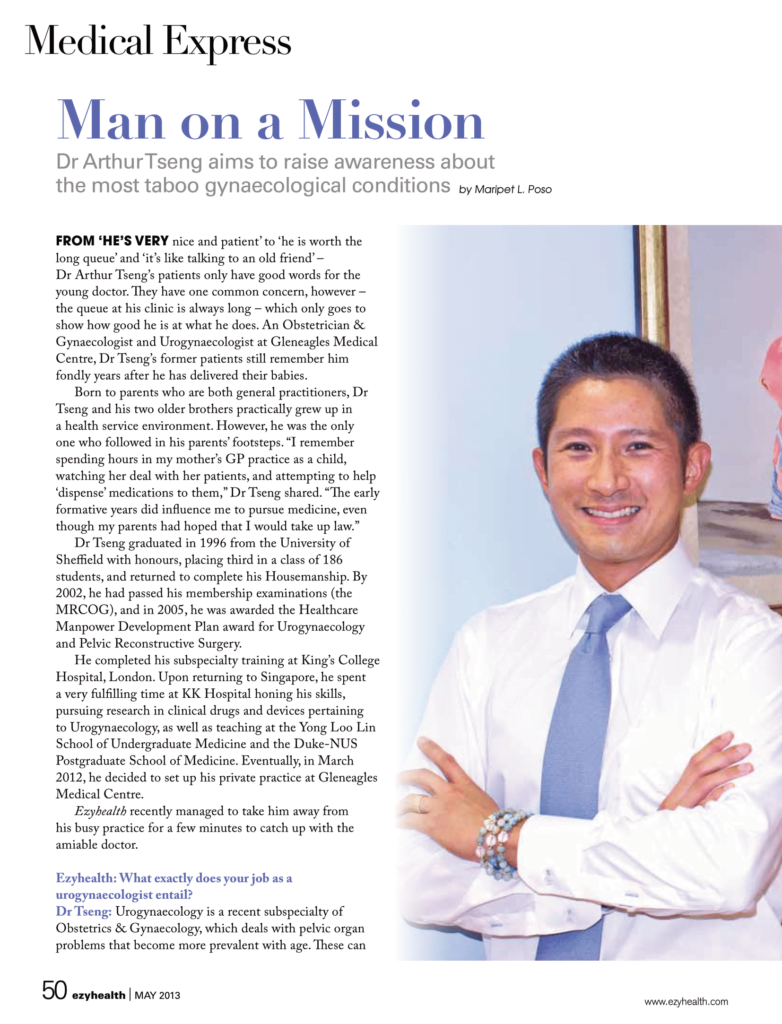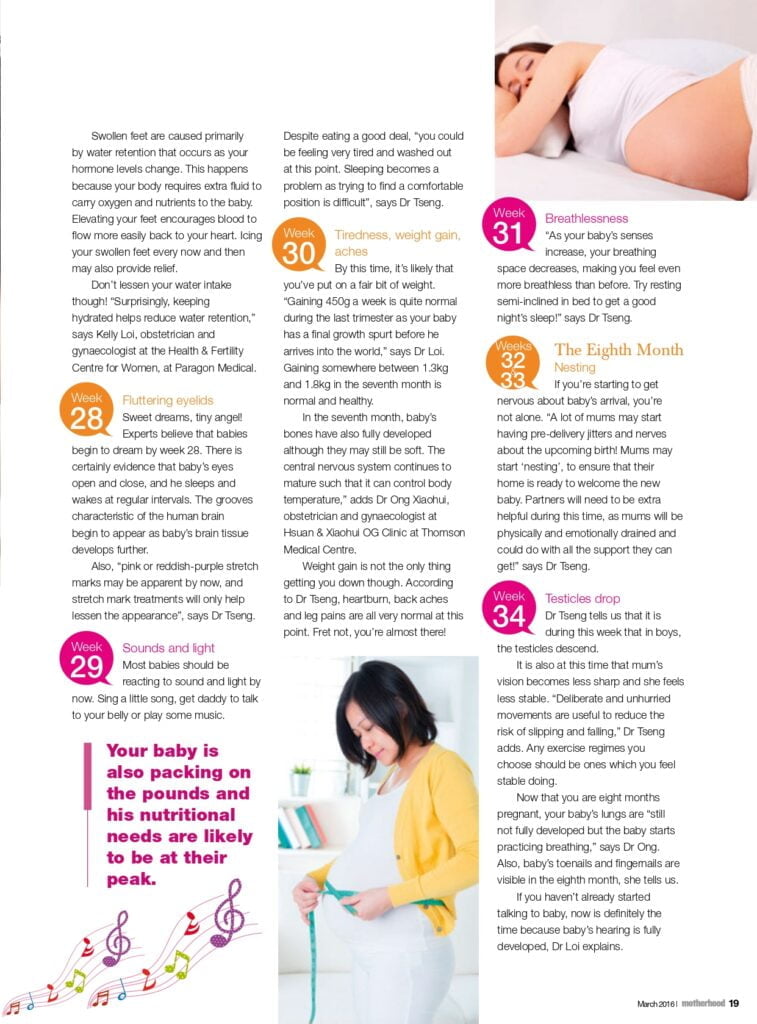- Gleneagles Medical Centre 6 Napier Road, #09-19, Singapore 258499

We strive to help you manage urogynaecologic symptoms so you can get back to living your best life. Book consultation with Dr Arthur Tseng now!
Menopause—the stage in your life when you trade menstrual periods for hot flashes, night sweats, and increased irritability or anxiety. But while these all gradually recede as a woman ages further, urogenital syndromes can actually worsen over time. Here’s what you can do to not get trapped in such a situation.
A woman arrives at menopause after she has depleted her finite lifetime’s supply of eggs and has ceased having menstrual periods for one year. Menopause leads to significant changes in the vulva, vagina, cervix, urethra, and bladder, some of which include vaginal dryness and/or discharge, violent itching, and urinary problems—such as incontinence or infection—in a syndrome known as atrophic vaginitis.

Urogenital syndrome can happen to any woman, but mostly affects those who have menopause. It occurs due to:
Vaginal dryness, itching, and discharge can all be attributed to the decline in the production of
oestrogen by the ovaries. The lack of this hormone results in the weakening of the skin and the
support tissues of the vulva and vagina, causing both structures to become thin and less elastic.
As a result, they become easily damaged, even by the gentle friction caused by the rubbing of
underwear on skin. However, the largest impact is usually seen on a women’s sexual life as sex
becomes difficult, painful, and of course, unwelcome.
As for the vaginal discharge, the lack of oestrogen causes the pH (acidity level) of the vaginal
secretions to become more alkaline, which affects the balance of the micro‐organisms in the
natural secretions, in turn suppressing the normal levels of “good” bacteria (lactobacillus).
The
discharge is usually watery, discoloured, and perhaps slightly smelly. Each discharge is often
accompanied by vaginal burning and vulval irritation.
Urinary problems may be due to a variety of factors, primary of which could be urogenital
atrophy, which refers to the deterioration of the urinary tract and vagina. In addition, a lack of
oestrogen could also reduce the urinary tract’s ability to control urination, while the
advancement of age could also have debilitating effects on the pelvic area organs and tissues.
Urinary problems commonly experienced include the need to urinate more frequently, the
inability to control urination (incontinence), dryness and itching in the vagina, and increased
urinary tract infections.
Evidently, it is more common for a menopause‐aged women to encounter some form of urogenital syndrome than not. For this reason alone, it is vital that women seek advice from a doctor or specialist. But on top of that, the symptoms displayed by urogenital syndromes can coexist with other causes, such as vaginal or urinary tract infections, irritative symptoms, or the overuse of hygiene products.
Fortunately, there exist a variety of proven treatment options for women that they need not silently bear their respective syndromes in silence.
Oestrogen therapy is a type of hormonal treatment that has shown to significantly improve
vaginal atrophy symptoms, irritative symptoms, and urinary incontinence, while also
encouraging cell renewal in the vagina, bladder, and urethra, improving vaginal pH, and
reversing the microbiological changes in the vagina following menopause.
Oestrogen therapy
may be given orally, transdermally (through the skin) or vaginally.
These options differ in
delivery method, dosing, amount of oestrogen absorbed through the bloodstream, and patient
preference. Studies have shown that oestrogen therapy consistently relieves vaginal symptoms,
although local vaginal therapy has been seen to be more effective than oral therapy.
Furthermore, slight lifestyle changes such as wearing loose clothing, consuming sufficient fluid,
and avoiding commercial vaginal douching or products, can go a long way in alleviating the
symptoms.
Non‐hormonal treatments such as using vaginal lubricants and moisturisers too can
often provide temporary relief of dryness and pain during intercourse, but are of course less
useful and permanent then oestrogen therapy.
For those looking towards phytoestrogens and
herbal supplements, neither option has been proven to provide any benefit for urogenital
syndromes. Sufficient exercise during the menopausal transition may also prove helpful in
reducing bone loss, and could also lower cholesterol and triglyceride levels.
Dr Tseng's expertise covers urinary incontinence and pelvic organ prolapse, apart from that, his particular interest lies in the holistic management of Overactive Bladder Syndrome and other functional bladder conditions. With many years of experience in this field, he is committed to providing patients



